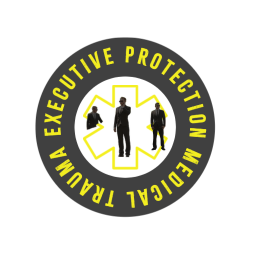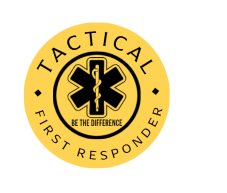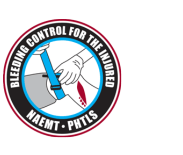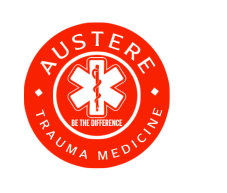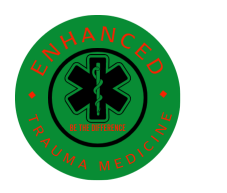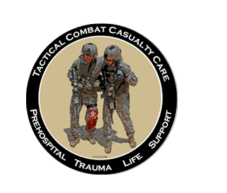
C.R.M.
At ETS, Inc. we understand from first-hand experience that the first and last 15 minutes of trauma management are critical in giving your patient the best chance of functional survival. Our C.R.M. (Crisis Response Medicine) program is a pre-hospital trauma program that is designed for medical and non-medical private citizens to respond during to active-threat incidents involving single or multiple trauma casualties, everyone's worst nightmare, including mass casualty triage life-saving techniques.
Click the images or link on the left to register for course.
As Veterans and former First Responders, we understand that what you do protects our way of life therefor, we extend a 10% discount on our training classes to all First Responders, Military & their Family members. - We will contact to confirm.
Made by Americans, trained by Americans, to protect Americans!
Early Responder®: A bleeding control course designed for those who have little or no medical training but may be called upon to respond to and deliver trauma care and bleeding control prior to emergency medical services (EMS) arrival or in an austere environment. t. Examples of potential students include teachers, taxicab drivers, train station attendants, and Transportation Security Administration (TSA) workers. Course includes FOTS Certificate.
BCon: Trauma first aid training incorporates the skills, expertise and knowledge of individuals with first-hand medical experience, and applying it into realistic, scenario-based training modules. This bleeding control course course is designed for those who have little or no medical training but may be called upon to respond to and deliver trauma care and bleeding control prior to emergency medical services (EMS) arrival or in an austere environment. Course includes BCon Certificate.
Tactical First Responder: A practical 16-hour emergency medical course that is designed to prepare non-medical civilians that are First Responders with a Duty to Act to respond to casualties during active-threat incidents, time of danger or distress, involving lecture and scenario-based training on MARCH PAWS (massive hemorrhage, airway, respirations, circulation, head injury/hypothermia, pain management, antibiotics, wounds, splinting) framework for prioritizing trauma care. The outcome of this course prepares First Responders with a Duty to Act tactics to respond to Active Shooter, CBRNE, and Terrorism events as well as traditional traumatic injuries. Course includes FOTS and BCon Certificate.
Tactical Emergency Casualty Care + PLUS: A 16-hour emergency medical course that is designed to prepare civilians with ATTC or equivalent to respond during to active-threat incidents and to casualties involving extreme hemorrhage or penetrating injury to chest or abdomen. Techniques taught, but not limited to, direct pressure, wound packing, tourniquet application, and needle decompress. The outcome of this course is to train those who have the Duty to Act on how to treat the trauma but how to provide maximum lifesaving interventions, as well as how to interact with other EMS First Responders and Law Enforcement Officers. Course includes TECC Certificate.
Mass Casualty Incident Response: an emergency response course designed to provide mass casualty triage education and practical experience in the application of the SALT (Sort, Assess, Lifesaving Interventions, Treatment/Transport) Mass Casualty Triage Algorithm which teaches planning methods, preparedness, and medical management of trauma patients in mass casualty disaster situations. Through lecture and interactive scenarios, you’ll learn incident command terminology, principles of disaster triage, injury patterns, and availability of assets for support. Course includes a DMEP certificate from The American College of Surgeons and a School Emergency Triage Training (SETT) certificate of completion.

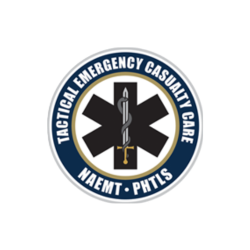

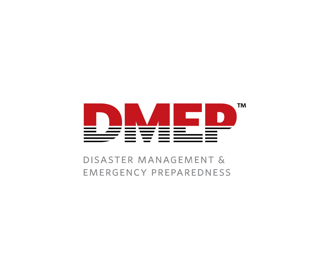
Courses are based on TECC guidelines for BLS/ALS medical providers and are grounded in Special Operation Forces lesson learned plus evidence-based medication to create proficiency in First Responders with a Duty to Act. Courses will incorporate classroom and hands-on instruction. The culminating reality-based exercise using our active-bleeding trauma training devices, will prepare students to respond without hesitation during an active-threat.
Immediate Trauma Medicine (Stop-The-Bleed +): A bleeding control course for casualties involving multiple major hemorrhages or penetrating wounds. Course is designed for LE, Military or private citizen introducing evidence-based, life-saving techniques and strategies for providing the best trauma care on the battlefield to non-medical Military and LE personnel. Course is designed to fill a current gap existing between military self-aid/buddy care training and civilian EMS training and is geared towards those military and LE with little to no medical training or background.
Enhanced Trauma Medicine (Extreme Trauma): Course is designed for team medics, EMTs, paramedics, ITM graduates and other EMS personnel working out of the hospital at the X, site of active-threat incident. It capitalizes on Immediate Trauma adding FONA (front of neck airway), an advanced lifesaving technique used my Special Operations Forces around the world when the upper airway is obstructed and the Advanced Cardiac Life Support (ACLS) bag-mask device is inadequate, to reverse hypoxia as well as prevent brain injury, cardiac arrest, or DEATH. The outcome of this course is to create tactically sound SWAT medics, non-medical military who will support elements in tactical operations.
Austere Trauma Medicine (Extended Care): Course is designed for team medics, EMTs, paramedics, ETM graduates and other EMS personnel working out of the hospital and includes Rope Rescue & Extrication skills appropriate for soldiers, sailors, airmen, and marines. Training will capitalize on ETM course and provides innovative and expert medical skills for the operational medical personnel to become better or more proficient in emergency or complex trauma care outside of the “Golden Hour”. The outcome of this course is to enhance students ability to provide maximum Prehospital Life Support care to trauma patients and/or care of complex casualties requiring trauma resuscitation / “field-surgical” care when we are delayed on the X or working in austere operational environments.
Executive Protection Medical Trauma: A combination of didactic and small-scale based advanced medical training to provide immediate point-of-wounding stabilization for the principal, oneself, or an injured team member. Base on the foundational principles of Tactical Emergency Casualty Care (TECC).The intense practical training will provide confidence to the end user in providing life-saving medical care while operating in austere environments with little to no assistance. Instructors are operational medical professionals with decades of advanced medical training in special operations, emergency services, and hospital settings. More Info and Registration
" In our study, the SALT triage system was overall more accurate triage method than START at classifying patients, specifically in the delayed and immediate categories. In our field exercise, paramedic use of the START methodology yielded a higher rate of under triage compared to the SALT classification....TCCC (Tactical Combat Casualty Care) and TECC (Tactical Emergency Casualty Care) has established MARCH to be used to identify and treat the major causes of preventable ”combat-related” deaths, when married with SALT, we can quickly and accurately triage and begin Life-saving treatments for the most common injuries sustained in a mass-casualty traumatic incident" - Pierce County, WA, Mass Casualty Triage Review
First Responder
Tactical Operations
We will need all individuals that participate in this class to complete a safety waiver. This can be done in store, however, for speedy check in you may fill this waiver out click here.

